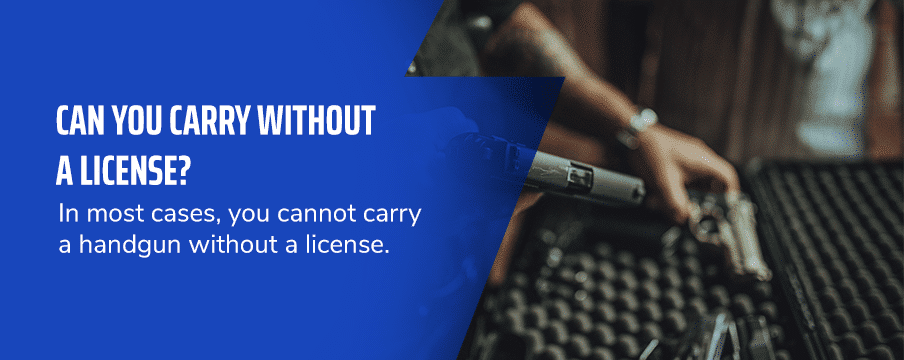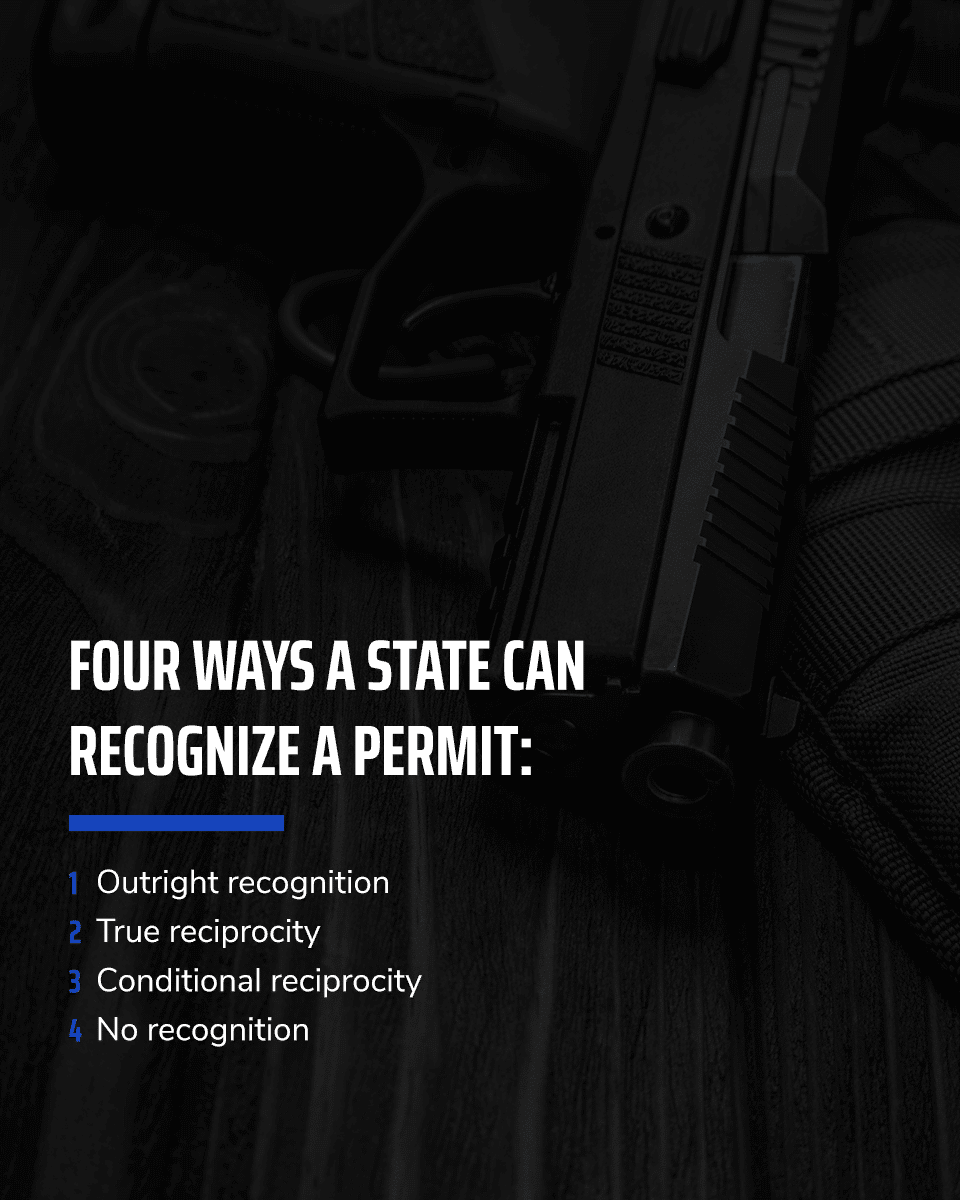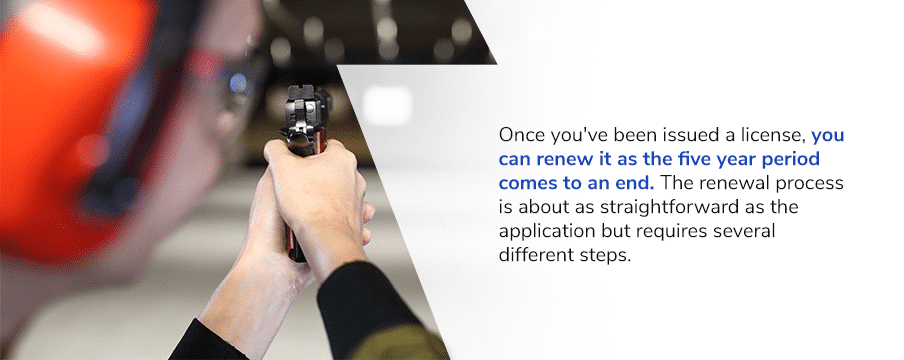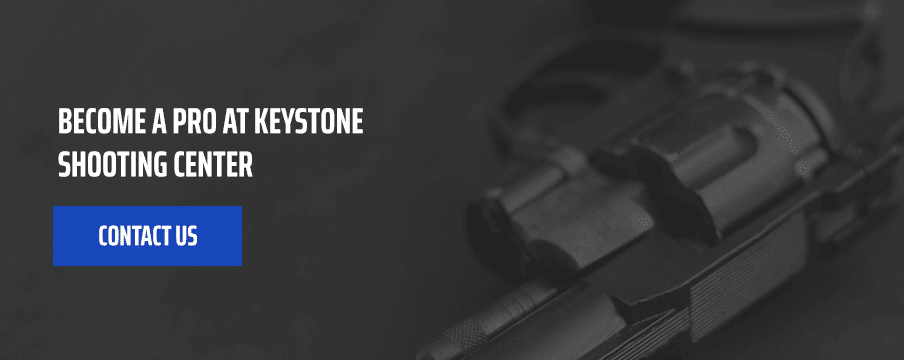Whether you’re a hunter, sport shooter or concerned about self-defense, you should become familiar with your state’s concealed carry laws. Every state has a different set of regulations, and the fine details differ for each county and city. The more you know about your state’s allowances, requirements and reciprocity agreements, the better prepared you’ll be if and when you decide to apply.
Pennsylvania has a relatively straightforward process and set of requirements for potential concealed carry applicants. This guide will help you understand the ins and outs of concealed carry laws in Pennsylvania, from eligibility to the application and renewal processes.
Is Concealed Carry Legal in Pennsylvania?
Every state has individual gun laws. Some states don’t issue permits and have deemed carrying illegal, others issue permits at varying degrees of discretion and some allow concealed handguns without a permit. Even then, some counties and cities may have stricter rules than others. But the state government dictates the legality of concealed carry and the minimum requirements for a license.
Pennsylvania is referred to as a shall-issue state, where an individual shall receive a permit for a concealed carry as long as they meet the specified requirements and complete any applications. While the carry regulations may differ slightly in different townships and cities, the law covers the whole state. So, as long as you have a legal and valid permit, you can carry anywhere in the state, unless an area is specifically restricted by a local government.
Can You Carry Without a License?

In most cases, you cannot carry a handgun without a license. According to the Pennsylvania Criminal Code, Title 18, Chapter 61, if you carry a firearm in public without a valid and lawful license in Pennsylvania, you are risking a first-degree misdemeanor charge, or up to five years in prison and $10,000 in fines. If you’re ineligible to apply for a license, the charges increase to a third-degree felony, which entails up to seven years in prison and $15,000 in fines.
Several states have open carry laws, where you don’t need a license. However, Pennsylvania law dictates that you need a permit, and may only carry a gun without one in detailed circumstances. There are only a few instances when you may carry a firearm without a license or permit for it, including:
- If you are in your home or your fixed place of business.
- If you are participating in regulated target shooting or while traveling to and from a practice facility. However, the handgun must be unloaded and in a container separate from any ammunition.
- If you are a member of law enforcement.
- If you are carrying an unloaded firearm from a seller to your home or fixed business, to or from a repair shop and while traveling to or from one home or place of business to another, such as a vacation house or upon moving to a new location.
- If you are engaging in hunting or fishing, and you have a valid state Sportsman’s Firearm Permit.
- If you are transporting the firearm in a vehicle, as long as you have a valid and lawful license.
- If you have a lawful carry license that has expired within the six months before an arrest and you are otherwise eligible for a renewed permit.
- If you are eligible for a carry permit and operating another person’s vehicle that contains a legal firearm, registered to a spouse or parent.
While a Sportsman’s Firearm Permit allows you to transport a gun in certain situations, it’s not the same as a license to carry. With a Sportsman’s Firearm Permit, you are allowed to carry a legal, loaded weapon if you are hunting or traveling to and from a site within the designated season. It doesn’t account for public spaces or for use anywhere outside of hunting grounds.
What Are Firearm Reciprocity Agreements?

If you can acquire a concealed carry license in your state of residence, certain states will recognize your license in their state as well. Not all states participate — states that recognize your permit and the permits from other states your home state will recognize may differ. There are four ways a state can recognize a permit:
- Outright recognition: If a state accepts valid and lawfully issues permits from any other state, it is referred to as outright recognition.
- True reciprocity: The relationship of reciprocity between two states can either work both ways or be one-sided. If a state recognizes licenses from states that recognize their permits, then the two have true reciprocity.
- Conditional reciprocity: A state may accept valid and lawful licenses from other states, but add their own conditions that the permitted individual has to meet. It may occur to make up for a difference in two states’ concealed carry applicant requirements.
- No recognition: Some states choose not to participate in reciprocity with other states. They may only recognize their own permits or they may not offer concealed carry licenses at all.
These are important regulations for anyone who plans on traveling with their concealed carry handgun. Upon crossing state lines, you could be entering a zone where your license is fully legal or where it means nothing. Check to see if your destination state recognizes your home state’s licensing laws or if they have a reciprocity agreement. For the most current concealed carry reciprocity agreement list, you can use the public resources on the Pennsylvania Attorney General’s website.
What Are the Requirements for a Concealed Carry License?
Before the state can grant you a license, there are a few things you need to be able to apply. The state can deem you eligible or ineligible before you even touch the required forms, and you have to make it through the process, references and background check after you submit.
If you are a Pennsylvania resident, the criteria for applying for a permit include:
- The applicant needs to be 21 years of age or older.
- The applicant needs to have a clean criminal record and have no traits that could cause ineligibility.
- A completed application, submitted to their home county’s sheriff or city’s chief of police.
- A fee of $20.
- A background check conducted by the sheriff within 45 days of application submission.
For those who aren’t residents of Pennsylvania, you’ll also need a valid and lawful concealed carry license from your home state. You need one to be eligible for an out of state permit. Check to see if your home state and Pennsylvania have an active reciprocity agreement, as you may be denied if there isn’t one.
If you are eligible and wish to submit an application, you can find the required forms online or at your local sheriff’s office. The concealed carry permit lasts a period of five years once it’s issued, but it can be revoked at any time due to criminal activity or reasonable concern. It will stay active as long as the owner remains a resident of the state in which the permit was issued and retains a clean legal record.
Who Is Ineligible to Apply?
Just as there are requirements for applicants to meet before submitting for a license, there are also some restrictions on who can legally apply. Individual states detail most of the regulations that come with issuing concealed carry permits. But there is a federal law that dictates which individuals aren’t allowed to apply for a license or receive or possess a handgun at all. The list of reasons for ineligibility include individuals who:
- Have had a conviction in any type of court, punishable by over one year of prison.
- Are fugitives of the law.
- Are addicted to controlled substances or are unlawful users.
- Were hospitalized to a mental institution or judged as mentally unstable in a court of law.
- Are illegal aliens in the U.S. or have been admitted to the country with a nonimmigrant visa.
- Have been dishonorably discharged from the Armed Forces.
- Have previously given up their U.S. citizenship.
- Are under a certain type of court-mandated restraining order.
- Have a record of any misdemeanor crime or domestic violence convictions.
These are the federal requirements for restricted eligibility. At a state level, governments can set stricter laws, and county sheriffs can turn down an applicant due to their criminal history or character.
How to Apply for Concealed Carry License
While the requirements in Pennsylvania are strict enough to require a thorough background check and form submission, the application process is relatively straightforward. As soon as you decide to obtain a license, you can receive one within two months.
There are three steps to follow to apply for a concealed carry permit:
- Download, print and fully fill out the Pennsylvania concealed carry permit application. You can also pick one up at your county sheriff’s office. Before you apply, make sure you have two individuals who aren’t family members who are willing to serve as references.
- Submit the completed application and fee payment to either your local chief of police or county sheriff’s office. When you go, bring your driver’s license or another form of valid state ID, or, if you’re from out of state, your original license or permit. At the time, the office will take your photo.
- Wait for a response from your local sheriff’s office or chief of police. If you have been approved, you will receive a confirmation letter by mail.
On the application, you need to note your reasoning for submitting and seeking the permit, which can be for a form of employment, hunting, self- and home-defense, gun collecting or another sufficient motive. If your application is thorough and there are no disqualifications between the submitted forms and investigation, law enforcement will issue you a license.
How to Renew a Concealed Carry License

Once you’ve been issued a license, you can renew it as the five year period comes to an end. The renewal process is about as straightforward as the application but requires several different steps. If you start within the acceptable window, as long as you haven’t become ineligible, you should be able to obtain a new license with ease.
To renew your permit, you need to follow several steps:
- There is a 120-day window within which you can renew a concealed carry permit. If you want to submit in advance, you can do so up to 60 days before your current license expires. Once your permit is considered expired, you have another 60 days to renew. After the 60-day period, you have to resubmit as a new applicant. Depending on how much you’re willing to spend and how you plan on carrying your license, you have two options for a physical copy. You can opt for the more expensive hard plastic card — similar to your state driver’s license — with no photo or the less expensive laminated paper version with your photo. For the second version, you’ll need to submit two official passport photos.
- The actual renewal application varies between counties, so be sure to look up what your county sheriff’s office or chief of police specifically requires before submitting. In some areas, you’ll need to set up an in-person meeting with your sheriff first. You have to re-fill out the paper form, which you can download and print or pick up from the county office. It’s the same as the initial application form. When you submit, you must have the completed papers, payment for the fee, your expired concealed carry permit and a valid driver’s license with your address.
- Once you’ve gone through the proper channels and have submitted all the required documents, all you have to do is wait. Your county will send you an approval or denial letter in the mail.
Once you’ve received your renewed permit, it’s valid for another five years. You can continue renewing as long as you remain a Pennsylvania resident with a clean legal record. If you miss the deadline for renewal, you will have to submit as a previously unlicensed applicant.
Where Can You Carry a Concealed Weapon With a Legal Permit?
As long as you have the proper legal license, you can carry in any area deemed legal by the state and local laws for your area. The allowances may differ slightly, but there is a broad set of location restrictions for the state of Pennsylvania.
With a concealed carry permit, you may have your weapon on your person in restaurants that serve alcohol, at roadside areas and rest stops, in state and national parks and forests and in privately-owned places with a notice that allows for it. Even with a license, there are several off-limits areas, such as elementary and secondary school buildings and grounds, courthouses, detention and correctional facilities, mental hospitals, secured airport areas and any other areas restricted by federal, state or local law.
Specifically, with concealed handgun laws in Pennsylvania, you also may not carry in the public areas of the One Penn Center in Harrisburg and any parks and buildings owned by the city of Philadelphia. These are regionally specific, which is why it’s important to brush up on legal allowances whether you have a permit or not.
Become a Pro at Keystone Shooting Center

Whether or not you have your concealed carry permit, you can still practice your skills at the range. Keystone Shooting Center has everything you need to become a seasoned shooter, from gun rentals and purchases to guided classes and lessons. Our staff will show you everything you need for a concealed carry weapon and how to care for it properly. With 24 climate-controlled shooting lanes, full rentals and a large facility run by professionals, Keystone Shooting Center will help you comply with the Pennsylvania state laws.
For more information on the services we offer, contact us or drop in for a visit.


 Search
Search 